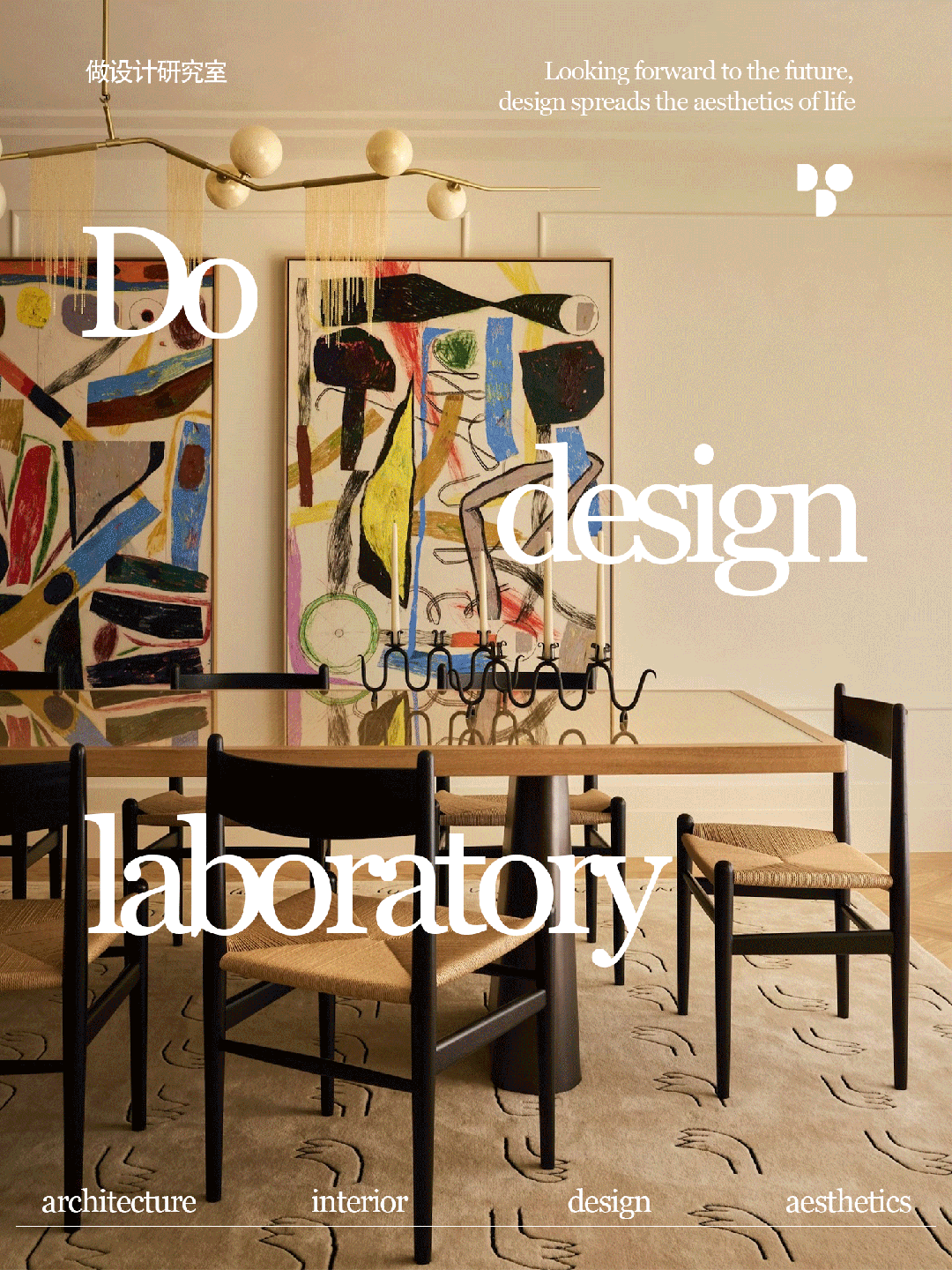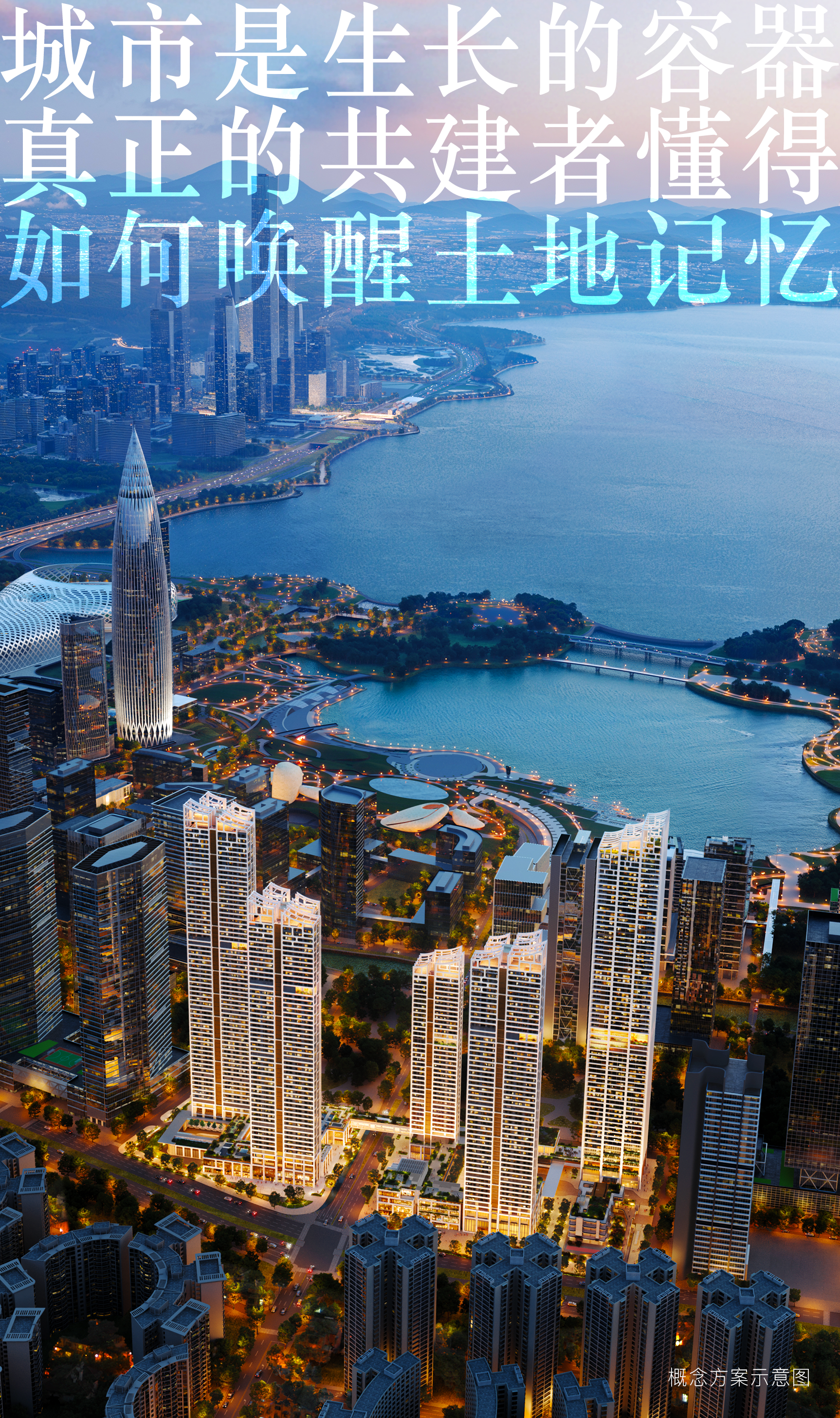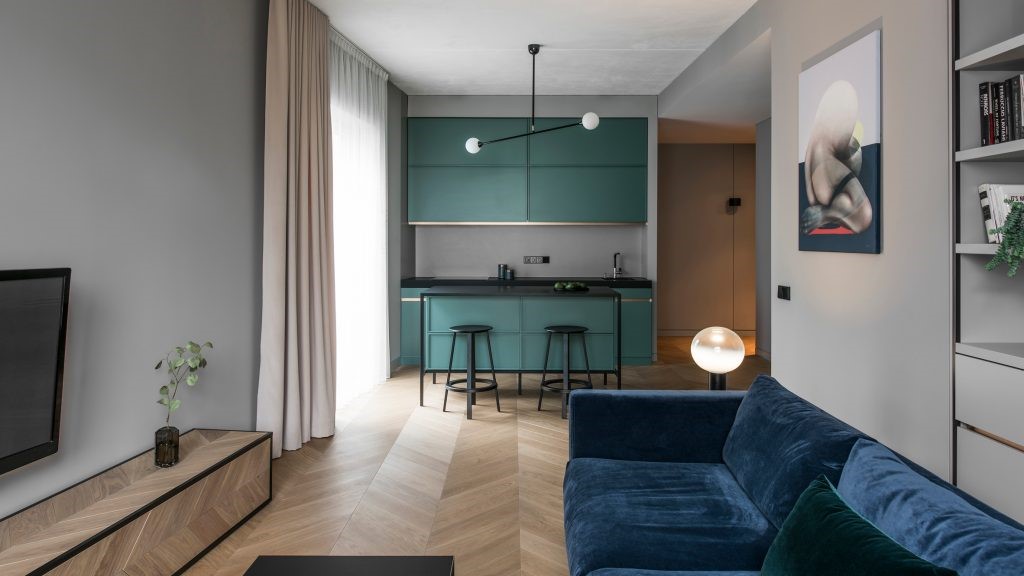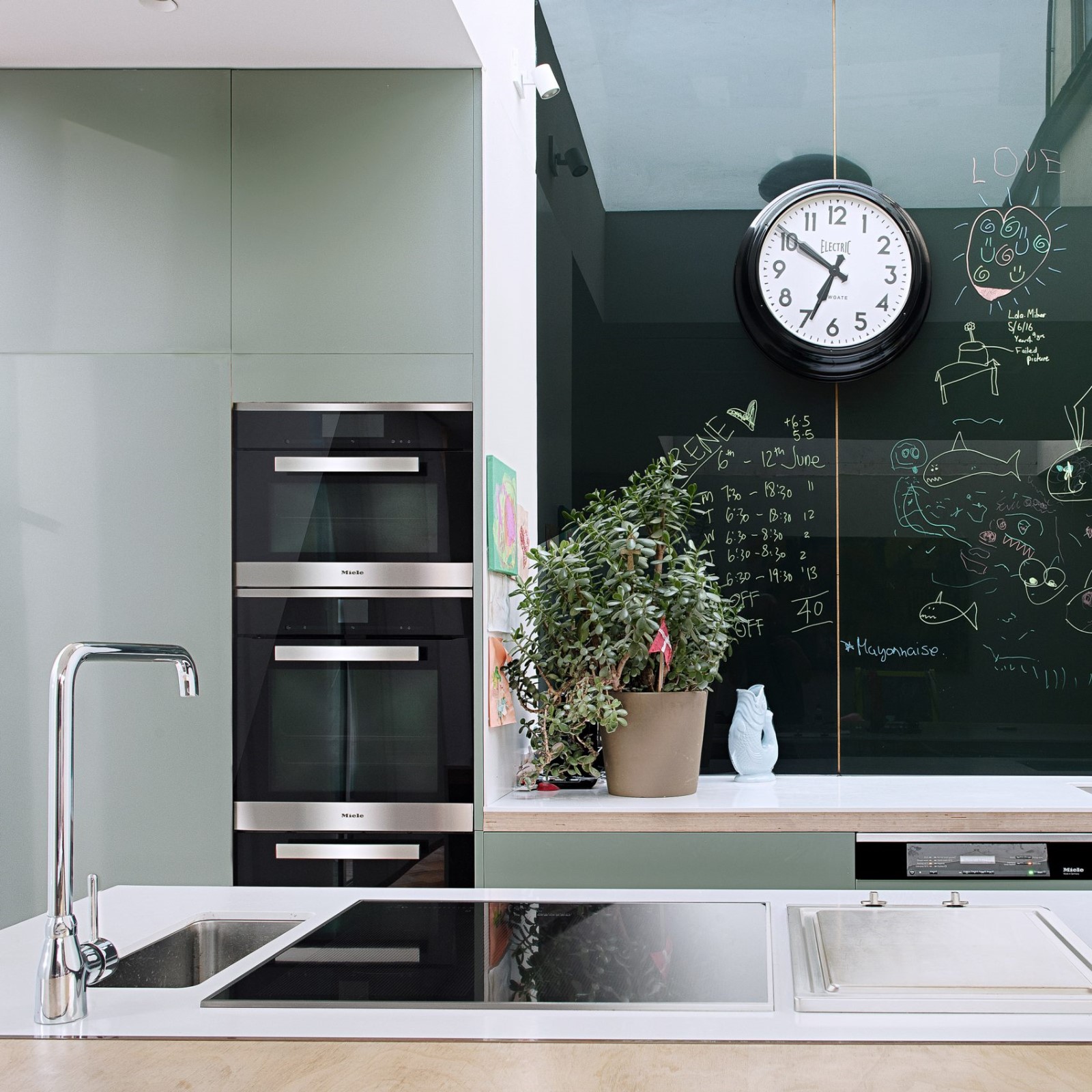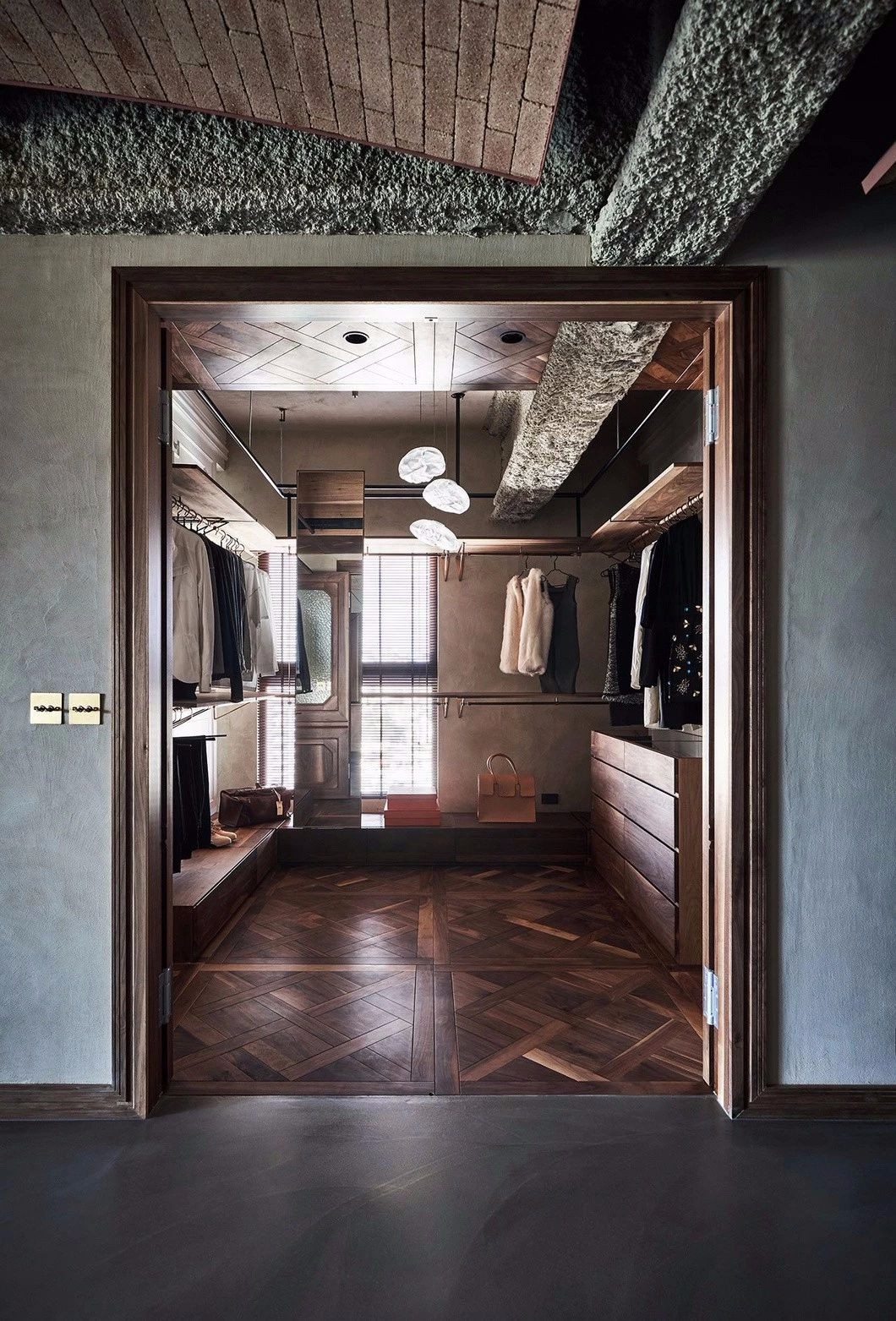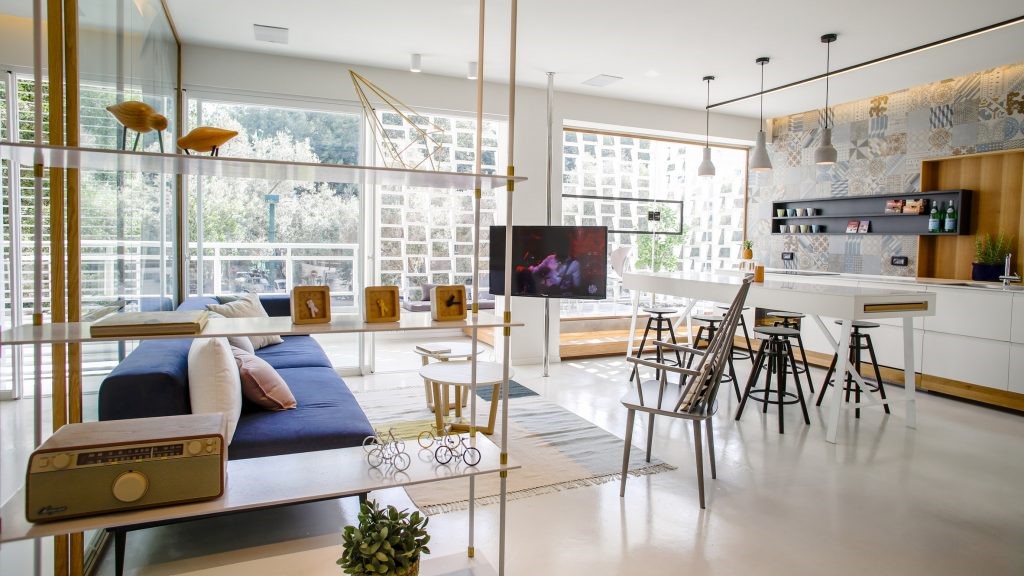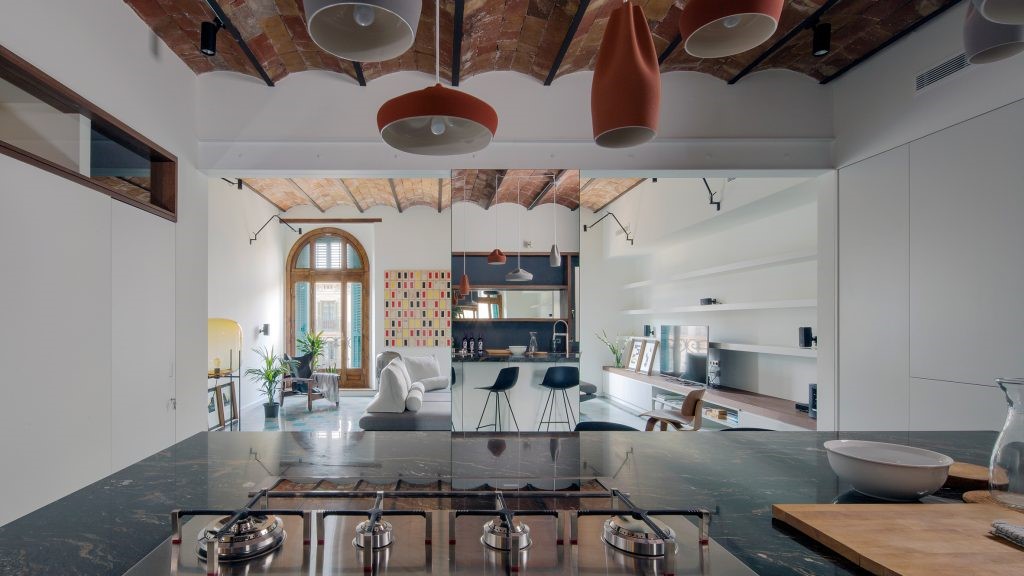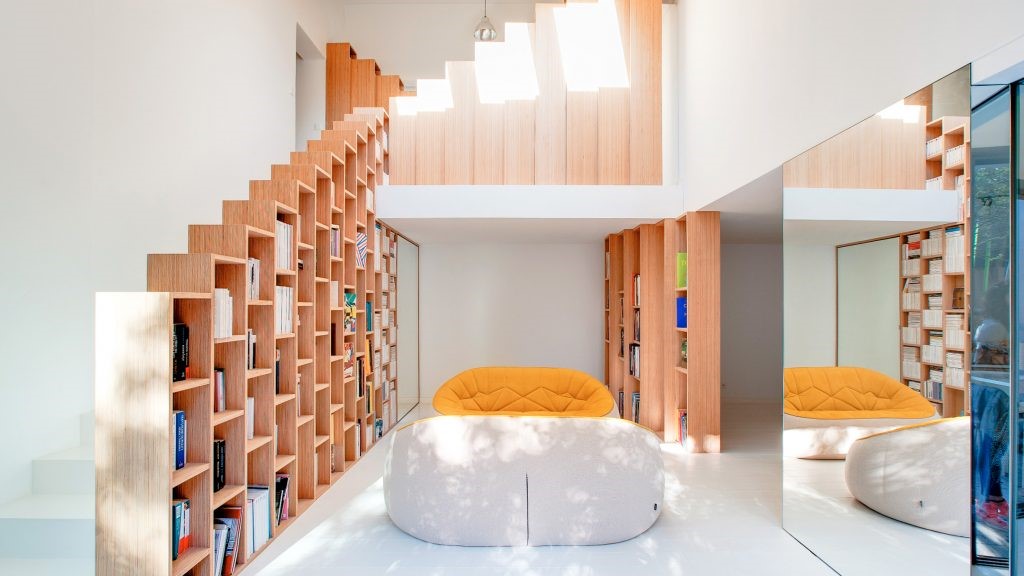The House of Grandfather Martinho is Given a New Lease of Life
2019-08-05 18:20


When it comes to finding the right house to call “home”, our criteria tend to focus on location, size, valuation and such, rarely taking account the narrative behind it. Not for this family of four, whose ideal home turned out to be a humble abode in the small village of Touro in central Portugal. A jumble of stone-built structures in an agrarian community of 1,000 people may seem like a strange choice for a young couple and their two children to move to from the big city, but then again, the original owner of the house, “Grandfather Martinho”, wasn’t a local resident either, in fact he had just returned from exotic Brazil when he built the house in the 1940s. Designed by José and Mário Morgado, whose practice COVO Interiores is located just 7 kilometres away in the somewhat larger town of Vila Nova de Paiva, the renovated house respectfully embraces the building’s humble origins while espousing an interior design of contemporary minimalism that provides all the comforts that a modern family would need.
当涉及到找到合适的房子称为“家”时,我们的标准往往集中在地点、规模、估值等方面,很少考虑其背后的叙述。对这个四口之家来说不是这样,他们理想的家原来是葡萄牙中部图罗村的一个简陋的住所。对于一对年轻夫妇和他们的两个孩子来说,在一个由1000人组成的农耕社区里,乱七八糟的石砌建筑似乎是一个奇怪的选择,他们从大城市搬到这里来,但话说回来,这栋房子的原主“马蒂尼奥爷爷”(祖父Martinho)也不是当地居民,事实上,他在20世纪40年代建造这座房子时,刚刚从异国情调的巴西回来。由José和Mário Morgado设计,他们的诊所Covo Interiores就在7公里外的比拉·诺瓦·德·派瓦(Vila Nova De Paiva)小镇,装修后的房子恭敬地包含了这栋建筑的简陋起源,同时也采用了现代极简主义的室内设计,为现代家庭提供了所需的一切舒适。


Photo by João Morgado.
图为若昂·莫加多。


Photo by João Morgado.
图为若昂·莫加多。


Photo by João Morgado.
图为若昂·莫加多。


Photo by João Morgado.
图为若昂·莫加多。


Photo by João Morgado.
图为若昂·莫加多。


Photo by João Morgado.
图为若昂·莫加多。
Located on a cobblestone alley that widens to become a communal courtyard where chickens occasionally roam, the house is made up of two adjoining stone-built buildings and an adjacent annex. Externally, the stone masonry has been meticulously restored – its irregular pattern of stone blocks punctuated by the rectangular shapes of the new windows and doors – as has the tiled roof. Slim white metallic frames maximize the glazing area of the windows which, during the day, appear as reflective rectangles against the masonry façade, a balance that is inverted during the night when the illuminated interiors pop out of the darkened stone exterior.
位于一个鹅卵石巷子巷子上,加宽成了一个公共庭院,鸡偶尔会漫游,房子由两个相邻的石砌建筑和一个相邻的附属建筑组成。从外部看,石材砌体已被精心修复--其不规则的石砌块图案与新门窗的矩形相接--也有瓷砖屋顶。细长的白色金属框架最大化了窗户的玻璃区域,在白天,这些窗玻璃区域在砌体窗台上显示为反光矩形,在夜间,当被照亮的内部从暗色的石头外部伸出时,这种平衡是倒置的。


Photo by João Morgado.
图为若昂·莫加多。


Photo by João Morgado.
图为若昂·莫加多。


Photo by João Morgado.
图为若昂·莫加多。


Photo by João Morgado.
图为若昂·莫加多。


Photo by João Morgado.
图为若昂·莫加多。


Photo by João Morgado.
图为若昂·莫加多。


Photo by João Morgado.
图为若昂·莫加多。


Photo by João Morgado.
图为若昂·莫加多。


Photo by João Morgado.
图为若昂·莫加多。


Photo by João Morgado.
图为若昂·莫加多。


Photo by João Morgado.
图为若昂·莫加多。
Stepping inside, all aspects of the building’s agrarian past have been effaced by a minimalist aesthetic of whitewashed walls and concrete floors. On the ground floor, where Grandfather Martinho once kept his farm animals, there is now the living room and kitchen, separated by a cubic volume rendered in oak wood which conceals the staircase and the guest WC as well as contains built-in cupboards. Upstairs, two bedrooms with en-suite bathrooms that sport the same minimalist sensibility complete the residence, while on the adjoining block, where Grandfather Martinho stored cereals and wine barrels, a small studio allows the new owner to work from home.
踏进屋内,建筑物的土地历史的各个方面都被粉刷墙和混凝土地板的极简主义美学所抹去。在一楼,马蒂尼奥祖父曾经养过他的农场动物,现在有起居室和厨房,用橡木做成的一立方体的书把楼梯和客人的厕所都遮住了,里面还装着内置的橱柜。楼上有两间带套房浴室的卧室,这些浴室具有同样的极简主义情感,而在毗邻的街区,祖父马蒂尼奥(Martinho)在那里储存谷类和酒桶,一间小工作室允许新主人在家工作。


Photo by João Morgado.
图为若昂·莫加多。


Photo by João Morgado.
图为若昂·莫加多。


Photo by João Morgado.
图为若昂·莫加多。


Photo by João Morgado.
图为若昂·莫加多。


Photo by João Morgado.
图为若昂·莫加多。


Photo by João Morgado.
图为若昂·莫加多。


Photo by João Morgado.
图为若昂·莫加多。


Photo by João Morgado.
图为若昂·莫加多。


Photo by João Morgado.
图为若昂·莫加多。


Photo by João Morgado.
图为若昂·莫加多。


Photo by João Morgado.
图为若昂·莫加多。


Photo by João Morgado.
图为若昂·莫加多。
Opposite the house, the jumble of stone-built structures where Grandfather Martinho used to store the hay he fed his animals have been transformed into a one-storey annex housing a garage and auxiliary areas. Whereas the original masonry walls have been painstakingly restored, the architects have topped the structure with a concrete slab that appears to float above the walls, an effect that is accentuated at night when the slim gap between the roof and the masonry construction is illuminated. It’s a poetic architectural gesture where the past meets the present, which evocatively encapsulates the architects’ intention of celebrating both the house’s heritage and its new lease of life.
在房子对面,马蒂尼奥祖父用来存放喂他的牲畜的干草的石砌构筑物已经变成了一层楼高的附属建筑,里面有车库和辅助区。原来的砖墙是经过精心修缮的,建筑师们却在结构的顶部铺上了一个混凝土板,它似乎浮在墙的上方,这一效果在夜间被强调,因为屋顶和砖石结构之间的狭小差距被照亮了。这是一种富有诗意的建筑姿态,在过去与现在相遇时,这一姿态唤起了建筑师们庆祝这座房子的遗产和新的生命的意图。


Photo by João Morgado.
图为若昂·莫加多。


Photo by João Morgado.
图为若昂·莫加多。


Photo by João Morgado.
图为若昂·莫加多。


Photo by João Morgado.
图为若昂·莫加多。


Photo by João Morgado.
图为若昂·莫加多。
keywords:Architecture Residential Design Interior Design
关键词:建筑住宅设计室内设计
















